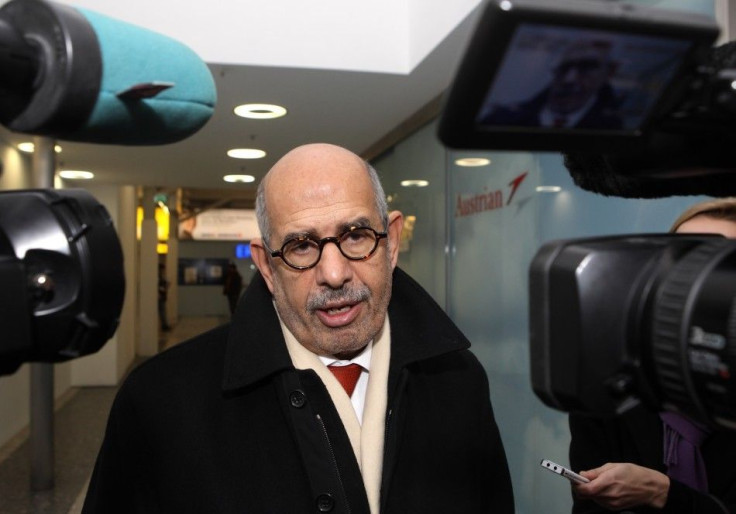Mohamed ElBaradei Abandons Bid for the Egyptian Presidency

Mohamed ElBaradei pulled out of the race for the Egyptian presidency on Saturday, with the Nobel Peace Prize winner saying the previous regime was still running the country, which has been governed by army generals since Hosni Mubarak was deposed last year.
My conscience does not permit me to run for the presidency or any other official position unless it is within a real democratic system, said the former head of the United Nations nuclear watchdog, once seen as a leading contender for the presidency.
ElBaradei has been a vocal critic of the military council that has been governing Egypt since Mubarak was toppled in February, swept from power by mass protests driven by demands for accountable and democratic government.
The military council's opponents say it is seeking to preserve power and privilege in the post-Mubarak era and do not believe the generals' repeated promises that they will surrender power to civilian rule at the end of June.
Headed by the man who was Mubarak's defense minister for two decades, the military council says it has no interest in government and is working to move Egypt toward democracy.
ElBaradei took aim at the way the transition was being managed. The randomness and the mismanagement of the transitional period are pushing the country away from the aims of the revolution, he said in a statement.
His remarks added to a recent wave of criticism targeting the generals. Former U.S. President Jimmy Carter said this week they looked unlikely to surrender all of their powers by the middle of the year, as promised.
His Carter Center, which has been monitoring the legislative elections, said the council's lack of transparency had created uncertainty about their commitment to full civilian leadership.
ElBaradei was head of the International Atomic Energy Agency from 1997 to 2009. In 2010, he returned to Egypt and began to speak out against Mubarak's rule. He took part in the protests that led to Mubarak's downfall on Feb. 11.
A favorite of Egyptian liberals and pro-democracy activists, the bespectacled lawyer was initially seen as a leading candidate for the presidency.
Grassroots Support
However, ElBaradei's campaign had been weakened by divisions. In November, some of his campaigners quit, saying he had become cut off from his grassroots base.
ElBaradei acknowledges he may not have the grassroots support to win in this presidential election, said political analyst and activist Hassan Nafaa. He also realizes that the next president will not have full powers and will be bound by the current system, he added.
By pulling out of the presidential race, he is aligning himself with the youth movement and the liberals, who have been sidelined in the interim process by Islamists.
The strongest political force in the country, Islamist groups have dominated the elections for the lower house of parliament that got under way in November and are now coming to a close.
The Muslim Brotherhood, founded in 1928, says it has won 46 percent of the seats, with the more hardline Nour Party winning some 23 percent of the seats.
One of Egypt's main liberal political parties said last Monday it would boycott upper-house elections this month in protest against what it says were violations committed by Islamist parties in earlier voting rounds.
ElBaradei said he would now work to help Egypt's youth become part of the political process.
Reflecting on the achievements of the uprising, he said: The most important gain is that the barrier of fear has been broken and that the people have regained their faith that they are capable of change.
(Additional reporting by Lin Noueihed; Writing by Tom Perry; Editing by Matthew Jones)
© Copyright Thomson Reuters {{Year}}. All rights reserved.






















